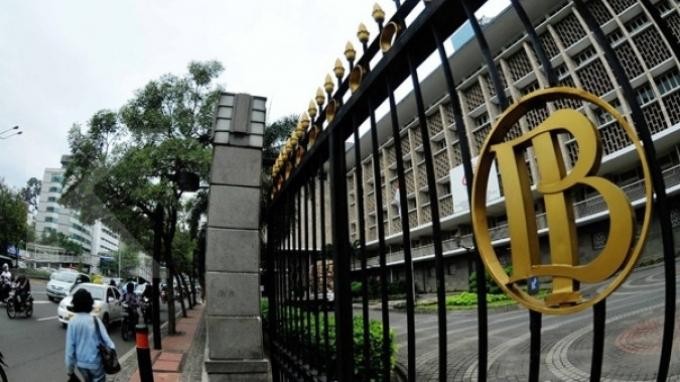Popular Reads
Top Results
Can't find what you're looking for?
View all search resultsPopular Reads
Top Results
Can't find what you're looking for?
View all search resultsForeign debt up but still safe: Bank Indonesia
Change text size
Gift Premium Articles
to Anyone
Indonesia’s external debt increased in 2018 amid rising foreign capital inflows toward the end of the year.
Indonesia’s total foreign debt reached US$376.8 billion as of December 2018, up 6.9 percent year-on-year (yoy), Bank Indonesia (BI) said in a recent statement.
The increase exceeded the 4.2 percent yoy rise seen in the preceding quarter.
Despite increasing, the level of foreign debt remains healthy, as 86.3 percent of the debt is long term in nature with maturity periods of more than one year, according to the central bank.
The figure brought Indonesia’s debt-to-gross domestic product (GDP) ratio to 36 percent at the end of 2018, a level considered within the range of peer countries, BI said.
The major factor behind the increase was the overall hike in net debt, BI said.
Government foreign debt, which also includes central bank borrowings, rose by $7.1 billion or 3.3 percent yoy to $183.2 billion at the end of the fourth quarter of 2018.
The increase was mainly caused by inflows of foreign funds into government securities (SBN) after global volatility had subsided, BI said.
Another factor causing the increase was the issuance of sovereign bonds worth $3 billion in December, part of the government’s pre-funding scheme to support the 2019 state budget.
As for private sector foreign debt, which also includes borrowings of state-owned enterprises, the amount rose by 10.9 percent yoy to $190.6 billion at the end of the fourth quarter.
BI attributed the increase in private external debt mainly to purchases of local corporate bonds by foreign investors.
Financial services and insurance; manufacturing; electricity, gas and steam procurement; and mining were the biggest contributors to overall private sector’s debt, accounting for 73.8 percent of the total.
The increase in private sector foreign debt was not extraordinary, as there were no explicit regulations restricting borrowing by companies, said Piter Abdullah, a research director at the Center of Reform on Economics (CORE) Indonesia.
As for the government, he said, it had to manage its annual borrowings to keep it below 3 percent of the GDP and overall outstanding debt below 60 percent of GDP, as stipulated in the 2003 law on state finances.
Despite the increasing in private sector debt, Piter said, favorable global conditions, such as a dovish monetary outlook in developed countries and a more stable rupiah exchange rate this year would eliminate risks often associated with Indonesia’s foreign debt.
“The risks from the exchange rate and [bond] default will go down,” said Piter.
A similar opinion was voiced by Bhima Yudhistira Adhinegara, an economist at the Institute for Development of Economics and Finance (Indef). He said foreign investors could be tempted with higher yields of Indonesian corporate bonds amid the “patient” approach taken by the United States’ Federal Reserve in deciding its interest rate going forward.
However, Bhima said, there were no strong signs yet that the rising foreign debt level meant an improvement in foreign-exchange earnings from exports.
“If the export [performance] is not reliable, the DSR can swell and shows signs of unproductive borrowings,” he said, pointing out that Indonesia’s DSR still stood at above 24 percent.
The DSR is the ratio of debt service payments, which comprise of principal plus interest, of a country to its export earnings. A country’s international finances are healthier when the DSR is low. The ratio is between 0 percent and 20 percent for most countries.
Indonesia’s tier 1 DSR was recorded at 24.08 percent last year, slightly down from 25.54 percent in 2017.










